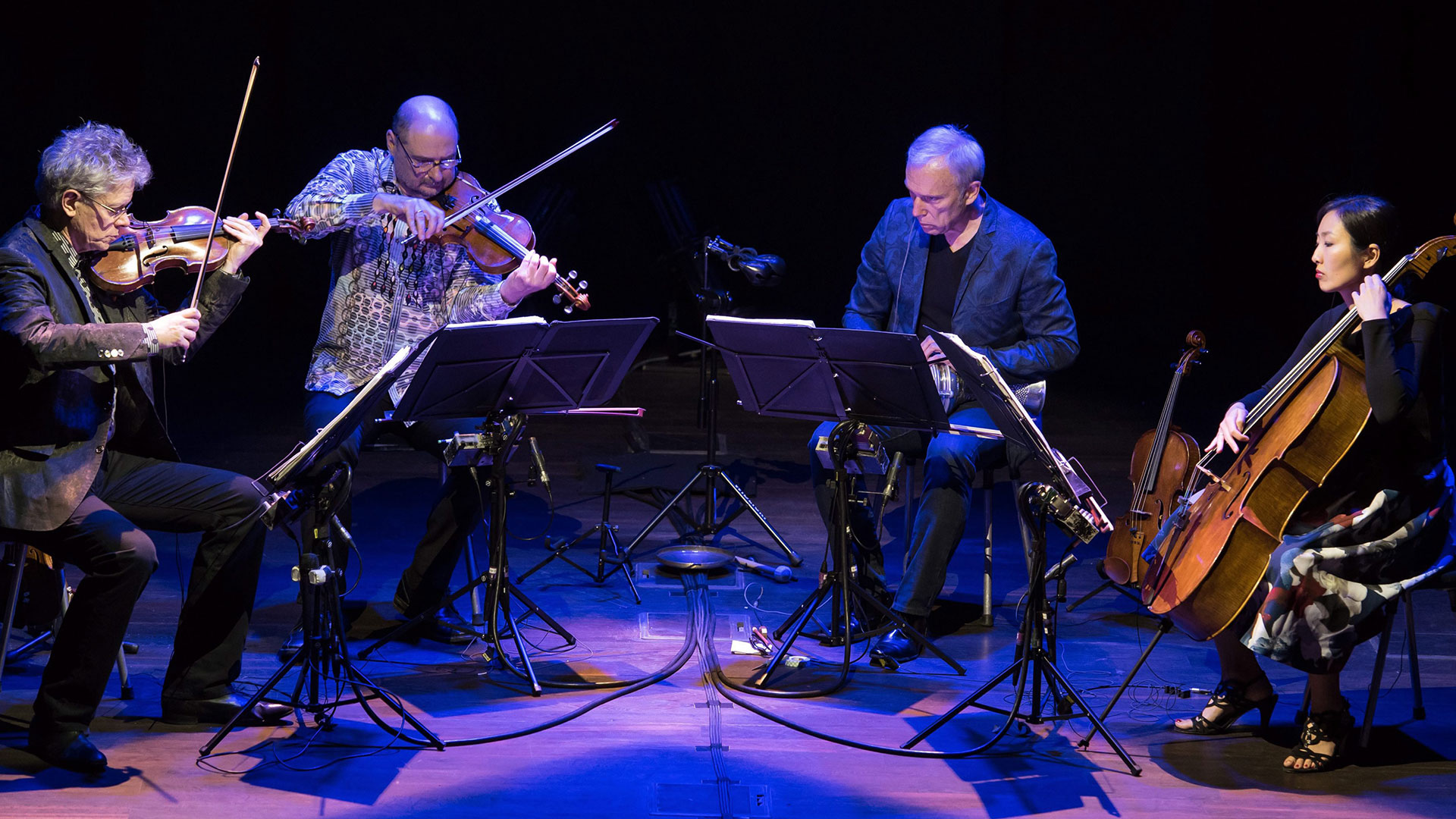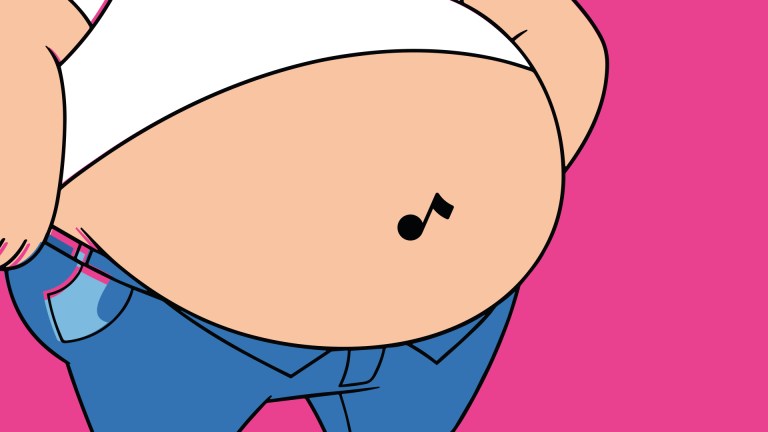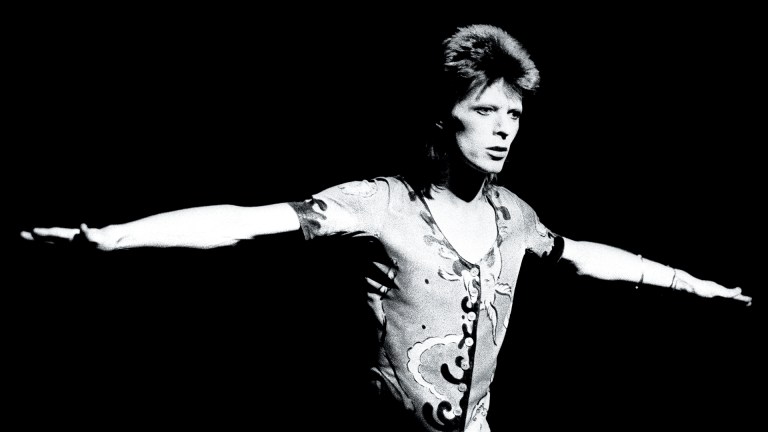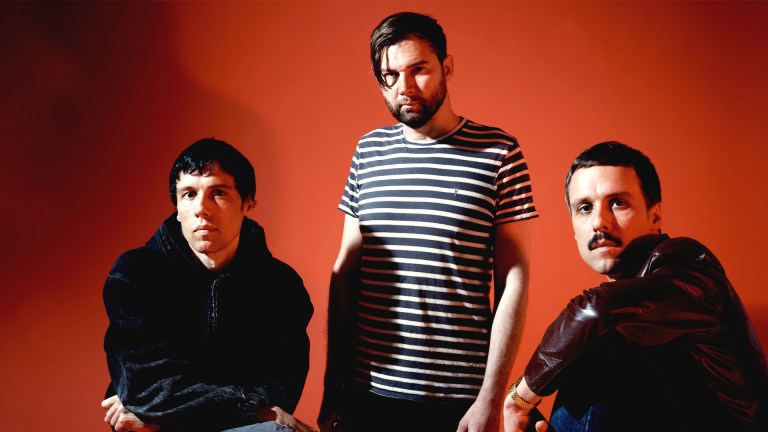Despite this being a celebration of the Kronos Quartet’s 40th year, it is an evening of firsts. Each part of the programme is either a world or UK premiere, including the short documentary that begins proceedings.
In the film, founding violinist David Harrington comments that “the great thing about music is that there is so much to do.” Perhaps his string quartet has few equals when it comes to meeting this challenge, the San Franciscan outfit having released over 50 recordings, commissioned more than 800 works, and collaborated with the most diverse roster of artists, in practically every genre imaginable.
The San Franciscan outfit have released over 50 recordings, and commissioned more than 800 works
One of their long-time collaborators is the American minimalist, Terry Riley, and the set begins with his recent commission, The Serquent Risadome, a moody and menacing piece that swells with urgency. The quartet is in impressive form, taking ownership of the narrative with passion and authority.
The Barbican is a home-from-home for Harrington and co, their first of many appearances having come in July 1993. On that occasion the performance included the UK debut of Philip Glass’ String Quartet No 5, and 21 years later, they introduce us to No 6.
At half an hour long, it is a work that contains all the signature moves you would expect from the great composer – repetitive, interlocking sequences, a building sense of drama – but it also surprises, taking sharp angled-turns that segue seamlessly into beautifully sombre passages.
The evening’s entertainment then shifts to reflect the ensemble’s more contemporary style, as they are joined by Bryce Dessner, guitarist with hip US rockers The National. Charged by Harrington with composing a quintet, Dessner’s 40 Canons creates a dreamy, wistful atmosphere over six movements, the muted, rhythmic and restrained guitar lines either matched or underscored by the strings. A very affective piece, at times it echoes Steve Reich’s landmark composition, Electric Counterpoint.









